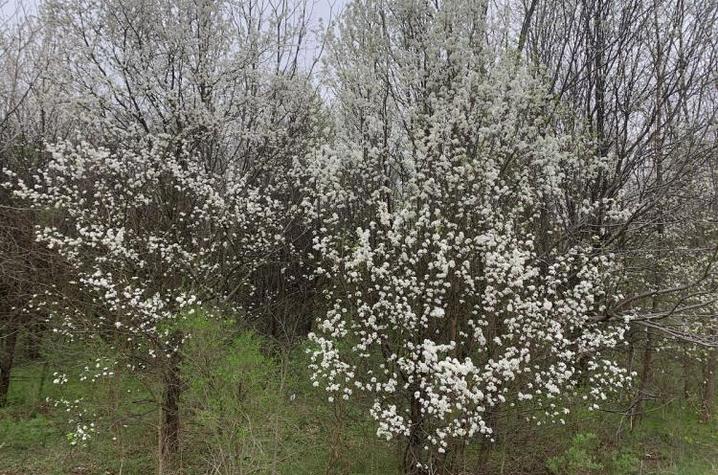Bradford pear trees are popular landscape trees, commonly planted in yards throughout Kentucky. A distant cousin of culinary pears, Bradford is a flowering pear, one cultivar of the Callery pear species. While beautiful when they flower, they are also a curse with the smell of blooms likened to “dead fish,” and its offspring, invasive Callery pear, a growing epidemic in old fields and roadsides.
To help combat these intrusive trees, the University of Kentucky College of Agriculture, Food and Environment, in partnership with the Remove Invasives Partnership of Franklin County and other local organizations, will host a Bradford Pear Bounty Program Tree Exchange at 9:30 a.m.-noon, March 12 and 17, at the Franklin County Extension office. The free events will allow Kentucky property owners to exchange their Bradford pears for an equal number of free young native replacement trees.
“The Bradford pear was originally touted as this perfect tree,” said Ellen Crocker, UK assistant professor of forest health extension in the UK Department of Forestry and Natural Resources. “It is a smaller tree with glossy foliage and was supposed to be sterile so it wouldn’t spread out of control. Now we know that its lifespan isn’t that long; its branches are extremely delicate; the blossoms smell bad, and it can cross-pollinate with other Callery pears and spread out of control.”




























